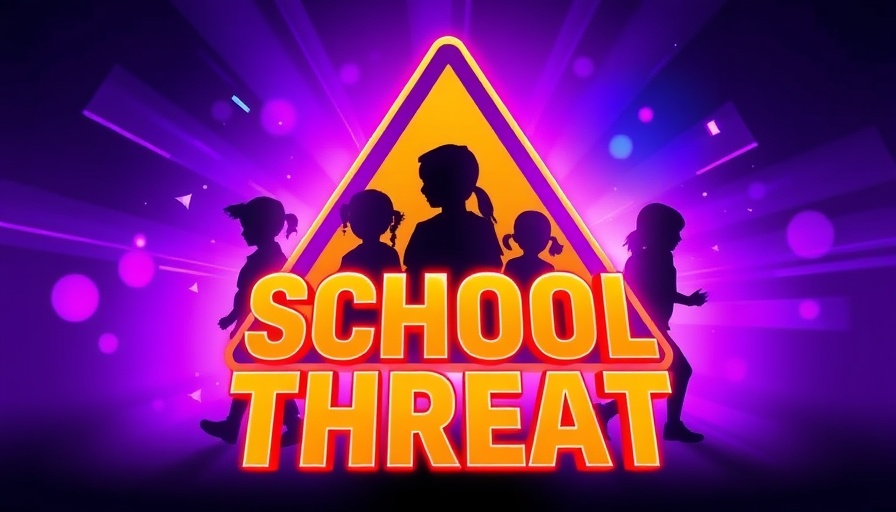
Understanding the Threat: What Happened at Oak Hill High School?
In a recent development that has raised alarm within the Oak Hill community, the Rapides Parish Sheriff's Office has launched an investigation into social media posts indicating a potential threat to Oak Hill High School. Released on September 21, the statement highlights that officials became aware of these posts on the same day and began a thorough investigation shortly thereafter.
Authorities stated that while a similar threat surfaced the previous Thursday, they deemed it not credible. Despite this, law enforcement agencies continue to treat threats with utmost seriousness, utilizing an arsenal of investigative tools to trace the origins of any concerning post. They emphasize the importance of public patience as they navigate this unsettling situation.
The Role of Social Media in Threats and Safety
This incident serves as a poignant reminder of the power social media holds in shaping public perception and safety within educational communities. With nearly 90% of teenagers using social media, platforms like Instagram and Snapchat become avenues for both communication and misinformation. Cyber threats can escalate quickly online, leaving authorities to scramble in response even when threats haven’t materialized into real danger.
Community discussions reflect a growing concern over how often such incidents occur and how swiftly they can incite fear and necessitate law enforcement action. The challenge for schools and law enforcement is to differentiate between genuine threats and reputational harms brought on by rumors or exaggerations.
Preventative Measures: What Schools Can Do
Educational institutions are not sitting idly by amid mounting threats. Many have instituted strict policies regarding social media use and established communication channels for students to report threats confidentially. By encouraging open dialogue and fostering trust between students and school officials, schools can create a safer environment for all.
Furthermore, crisis intervention teams, comprised of mental health professionals and law enforcement, are increasingly employed in schools to manage incidents of this nature proactively. Having trained personnel at the helm during such crises is a pivotal step towards effective management, averting panic, and ensuring student safety.
Community Response and Support
As this incident unfolds, community members and parents have been actively discussing safety protocols and the impact of social media threats on students' mental health. The emotional toll on students, who are already under immense pressure, cannot be overlooked. Recognizing the psychological aftermath of such threats, schools are pressed to provide counseling and support systems to mitigate feelings of distress or fear among students.
One local parent expressed concern over the potential ramifications of persistent threats. "It’s not just about physical safety; it’s about how these threats affect our kids emotionally. We need to have conversations about coping mechanisms and resilience alongside security measures," they stated.
Looking Ahead: The Evolution of School Safety Policies
As investigations continue and communities react, it’s crucial to discuss how schools can adapt their safety policies to reflect the current landscape of social media threats. Future trends indicate an emphasis on technology-driven solutions, such as the integration of AI monitoring systems that track threats in real-time, coupled with initiatives to educate students on digital literacy, ensuring they understand the implications of their online actions.
As Oak Hill High School navigates this recent threat, the multifaceted approach to education and safety reflects a nationwide imperative: how to protect our students not only from physical danger but also from the emotional consequences that accompany these threats. Collaboration between authorities, schools, and communities is essential to foster a supportive atmosphere resilient against future threats.
**To ensure your brand communication is on-point even during crises,** Book Your Brand Voice Interview Now!
 Add Row
Add Row  Add
Add 




Write A Comment